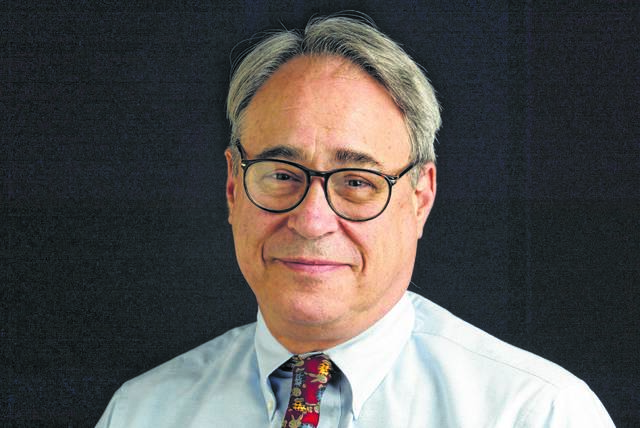Donald Trump is reportedly preparing an early announcement of his 2024 candidacy. The White House insists President Joe Biden will seek re-election.
But a lot of prominent figures in both the Republican and Democratic parties are behaving like they don’t believe either will ultimately run – or think they’re eminently beatable.
And the early maneuvering suggests both parties could face free-for-all nominating fights like the GOP in 2016 and the Democrats in 2020, starting the day after the Nov. 8 midterm elections.
Among Republicans, Trump has clearly sought to preempt the field by raising a multimillion-dollar war chest, choosing candidates in many GOP primaries and campaigning like it already is 2024.
But doubts about his real intentions, continuing threats of legal action and concern about the negative aspects of his prospective candidacy always made it likely Republicans would have the kind of contest faced by parties without an incumbent president.
Though the polls show the former president starts as the person to beat, his prospective opponents include many of his former closest aides – including former Vice President Mike Pence and former Secretary of State Mike Pompeo.
They’re hardly the only ones. Florida Gov. Ron DeSantis, shown in recent polls as Trump’s closest rival, has pointedly refused to say he’d back off if the former president runs. Outgoing Maryland Gov. Larry Hogan, an anti-Trump moderate, has not ruled out a race. Nor has Wyoming Rep. Liz Cheney, perhaps the former president’s most outspoken GOP foe.
And an imposing array of GOP senators and governors have followed the usual path that prospective candidates make to help fellow Republicans in such crucial early voting states as Iowa, New Hampshire, Nevada and South Carolina.
The Democratic outlook for 2024 is even more complicated: The party has a weak incumbent vowing to seek a second term – and an unsettled nominating calendar.
But Biden’s vows are not deterring other candidates, though most of their moves are more covert than overt.
The reasons are obvious: Biden’s age (he would be 86 at the end of a second term); his unpopularity (job approval below 40); and widespread opposition to his running again (a New York Times poll this week showed more than half of Democrats oppose his seeking re-election – though it also showed him beating Trump).
Those making tacit opening 2024 moves include two prominent big state governors – California’s Gavin Newsom and Illinois’ J.B. Pritzker – and a member of Biden’s own Cabinet, Transportation Secretary and 2020 also-ran Pete Buttigieg.
Newsom, facing weak re-election opposition in November, recently took the unusual step of running an anti-DeSantis television ad in Florida. It urged Floridians to fight GOP efforts to curb freedom through legislation limiting classroom speech and abortions — or move to California to find it.
DeSantis responded in kind, criticizing California’s lockdown policies during the COVID-19 pandemic and accusing Newsom of treating his own state’s citizens “like peasants.”
Pritzker, who recently campaigned for fellow Democrats in the first primary state of New Hampshire and Maine, provided a sharp contrast with Biden’s more restrained response to the recent spate of gun murders, saying he was “furious” and demanding action. Like Newsom, he is heavily favored for re-election this November.
Any list of potential 2024 hopefuls would also include two other Democratic governors – New Jersey’s Phil Murphy and North Carolina’s Roy Cooper – and one former governor – Commerce Secretary Gina Raimondo.
Pritzker is not the only potential 2024 candidate making the trek to New Hampshire. Two others who ran last time, Minnesota Sen. Amy Klobuchar and New Jersey Sen. Cory Booker, have also been there.
Meanwhile, Buttigieg’s Cabinet position provides a built-in governmental platform to tour the country, touting the job-creating projects being launched by last year’s massive bipartisan infrastructure law.
The former South Bend, Indiana, mayor also took some political steps. He moved to Traverse City, Michigan, the hometown of his husband, Chasten, ostensibly because the latter’s parents could help provide childcare for their recently adopted twins.
Of course, Michigan, a swing state that often votes Democratic, might provide a better launching pad for future political endeavors than heavily Republican Indiana. And it may wind up with one of the earliest primaries.
Buttigieg also reactivated his political action committee to help endangered Democratic candidates this year. And he was the highest-ranking Democrat to attend a meeting of the Democratic National Committee’s finance council this spring in South Carolina.
The most obvious Democratic alternative to Biden, of course, is his vice president, former California Sen. Kamala Harris. She had a rough year politically, given the negative stories about her staff problems and her lack of influence within the administration.
But the Supreme Court’s decision reversing its Roe v. Wade abortion ruling gives her a powerful platform to campaign on this fall, stressing an issue important to Democrats that could help them counter a potential GOP tide.
Still, Democrats expect Harris to face opposition should she seek to succeed Biden in 2024. And though age could be a factor in deterring Biden’s candidacy, an aide to Vermont Sen. Bernie Sanders said the Vermont independent might also enter an open 2024 race, though he is even older than the president.
Until the Nov. 8 midterm elections, expect a continuation of the shadow 2024 campaign. But once the results are in, it’s likely to emerge openly, in ways unpredictable at present.







